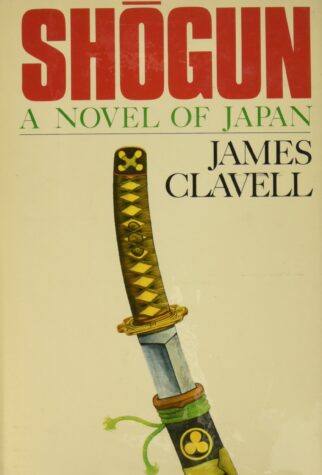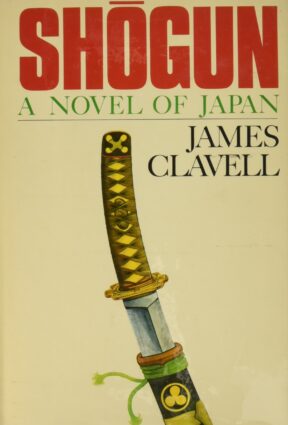
“Leave the problems of God to God and karma to karma. Today you’re here and nothing you can do will change that. Today you’re alive and here and honored, and blessed with good fortune. Look at this sunset, it’s beautiful, neh? This sunset exists. Tomorrow does not exist. There is only now. Please look. It is so beautiful and it will never happen ever again, never, not this sunset, never in all infinity.”—James Clavell, Shōgun.
Shōgun by James Clavell is a sweeping historical saga of feudal Japan. A bold English adventurer; an invincible Japanese warlord; a beautiful woman torn between two ways of life, all brought together in an extraordinary saga of a time and a place burning with conflict, passion, ambition, lust, and the struggle for power.
After Englishman John Blackthorne is lost at sea, he awakens in a Nippon, a place few Europeans have seen. The land is controlled by the Lord Toranaga, a powerful vassal, and Blackthorne must negotiate not only the unfamiliar customs and language of the people but also his own definitions of morality and truth. Blackthorne saves Toranaga’s life three times and is elevated to samurai status., which angers many. Meanwhile, his highborn Japanese love teaches him “inner harmony” as he grows ever more Eastern.
Clavell’s epic novel is fascinating, well researched, and educational, but some of the writing is lacking. I found the book tedious and didn’t always like the writing. I was confused about when the characters were thinking vs. talking. There was too much thinking, not enough narrative. The scope was too vast. There were so many characters and settings that I had to take a breather from reading it. I sprang for a study guide to help make sense of things.
The novel is a massive 1,152 pages long, and is filled with violence, political intrigue, war, tragic love, sex, torture, and ritual suicide. Some of the graphic depictions, including the acceptance of men having sex with young boys, were objectionable.
Despite these flaws, the book offers a glimpse into Japan during feudal times and the honor, courage, and cleanliness of the people. In contrast, the Europeans are depicted as unhappy, uncivilized barbarians.
Overall, I would recommend Shōgun to readers who enjoy historical fiction and will invest the time to read a very lengthy book. It’s captivating and offers a unique perspective on an interesting period in history. I may read the next book in the series, Tai-Pan, which is only 734 pages, but will stop there. Shōgun is not only one of the best-selling novels of all time, it was adapted into a highly rated television miniseries. 3.5 stars rounded up to 4.
